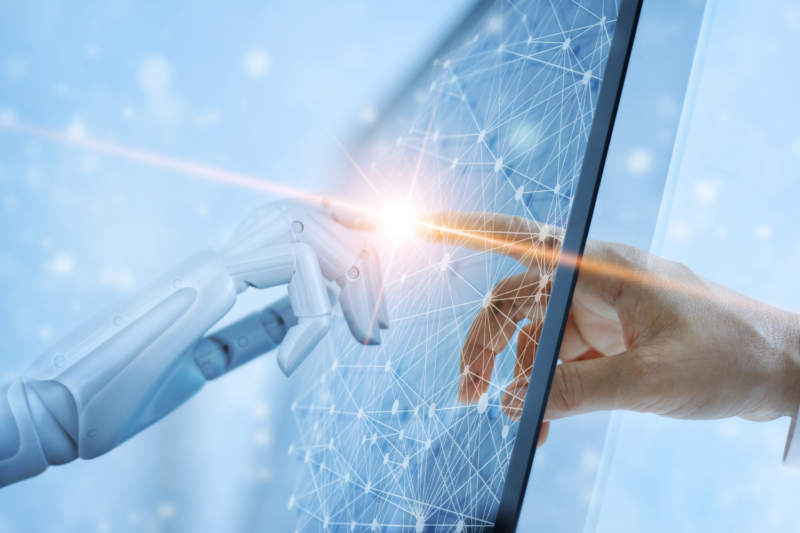Closing Digital Skills Gap Could Spur Global Economic Growth by $11.5trillion

The economic benefits of intelligent automation are vast, potentially totaling trillions of dollars in economic growth, according to research in a new book.
Businesses and organizations need to be prepared with proactive digital strategies in order to tap into these benefits, ensuring sustained economic growth, the book asserts.
Intelligent Automation: Bridging the Gap Between Business and Academia highlights the huge hurdles that the public and private sector, as well as universities must overcome if countries are to realize the full benefits of the digital revolution.
Lead co-editor Marie Myers collects a series of expert opinions from across industries to illustrate how companies and educational institutions can collectively and individually upskill their workforce.
“The advent of intelligent automation presents a golden opportunity for nations worldwide. Through collaboration and forward-thinking, we are on the brink of an exciting era of prosperity and progress,” Myers explains.
“Yet, today, very few academic institutions have the vision or dedicated resources to prepare students to work with Intelligent Automation adequately. Frankly, greater investments in this area are sorely needed – this is our future.”
Major transformation
The book’s other co-editors, visionary business strategist and lecturer Carol Brace and Assistant Professor Lila Carden, explore the future of work citing statistics that show the global digital transformation market is expected to grow from $470 billion in 2020 to $1 trillion by 2025.
But according to digital analysts, digital transformation is taking organizations twice as long, and costing at least twice as much, partly due to their workforce’s lack of digital readiness.
The duo suggest that businesses must continue to focus on the skills and capabilities of their workforce to remain competitive and keep up with the ever-changing pace of the digital era. One way to do that is to partner with academic institutions to create a steady pipeline of digitally fluent workers.
“The shift in the division of labor between humans and machines has led to digital transformation initiatives requiring new digital skills and new digital roles. While the demand for digital skills is high, the supply is low, and businesses are challenged to find individuals with the essential digital skills required.
“To close the gap, we recommend a framework that is based on a close partnership between organizations and academic institutions,” says Brace.
And according to the authors, the digital revolution will require the reskilling of at least 50% of employees and 40% of their core skills will need updating to meet rising digital intensity and demands.
Insightful strategies
Highlighting the scale of the problem, the book draws on expertise from a wide range of strategy, technology, and supply chain and logistics experts to provide actionable remedies.
The book provides practical guidance in navigating change in any organization, with insight from Shail Khiyara, widely regarded as a unicorn in the automation industry; Aftab Ahmed, Compliance and IT Audit Manager at oil giant ConocoPhillips; Digital Process Automation expert Kriti Kapoor; intelligent automation solutions expert Partha Baral; Digital Process and Automation professional Bobby Jutley; Assistant Professor Dr. Tiffany Maldonado; Director of Intelligent Automation at VMware Neeraj Mathur.
Importantly, some of the contributors stress the human element amid the tech revolution, noting that organizational and cultural change are vital aspects of any aspirations surrounding automation.
Furthermore, readers are given strategies to help them introduce technological and workflow changes to their organizations with examples of best practices.
This approach equips business leaders and educators with the ability to implement the right tools and strategies to deal with the digital disruptions of today and tomorrow.
Towards a better balance
Myers and her co-editors tackle live work-centric debates intrinsically linked to automation, including helping workers achieve a better work-life balance.
Technology is hailed as a tool that can be used to conduct routine, mundane tasks for humans, but as the authors state, this won’t happen at the click of a button.
Firms must ensure they fully understand how and where automation could fit into their organization, explore the best and most effective ways to upskill their employees, and employ a collaborative team approach when implementing new systems and strategies.
“I am intrigued and excited about a more automated enterprise that allows people to focus on value-added and interesting work, and leave the more mundane, routine-bound work to the bots,” Myers said.
“With the current gap in digital skills in the global economy, and an increasing desire for more leisure time, few options will enable this change. However, if organizations embrace intelligent automation and generative AI, we firmly believe that the convergence of these two groundbreaking technologies will revolutionize the way we work for generations to come.”

 China
China